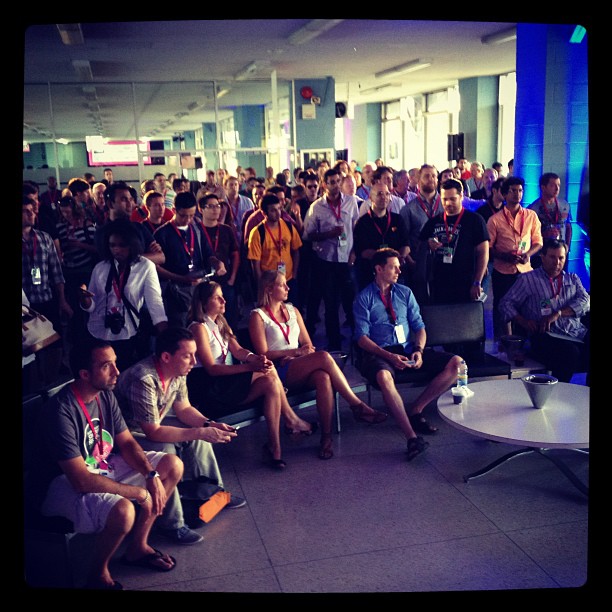TL;DR
Early bird pricing for tickets to International Startup Festival end on June 1, 2013.
We can all gripe about why founders and startups should not attend events, and they should get down to figuring out if there is quantified market demand for their product.
"Traction is your story of momentum told through quantified evidence of market demand for your product" @brendanbaker @hnshah #awesome
— David Crow (@davidcrow) May 30, 2013
But lets face it, summer feels like it is here in Toronto (it’s hot). And we all need to blow off some steam. So why not take some 2-3 days and connect in Montreal (or Vancouver more on that soon). Startup Festival early bird tickets sales end tomorrow (June 1, 2013). There is an amazing lineup full of local, national and international recognizable talent. Come to Montreal. Be prepared to listen to amazing stories from real founders and investors about how they figured out traction for their companies.
Folks I’m looking forward to hearing stories from:
![]() Dulcie Madden
Dulcie Madden
Follow @dulciemadden
Co-founder of Rest Devices, Inc.
![]() Joe Chernov
Joe Chernov
Follow @jchernov
VP Marketing at Kinvey
![]() Fred Destin
Fred Destin
Follow @fdestin
Early Stage VC at Atlas Venture
![]() Jen van der Meer
Jen van der Meer
Follow @jenvandermeer
Advisor, Luminary Labs
![]() Michael Baum
Michael Baum
Follow @michaelbaum
Founder of Splunk, Venture Partner at Rembrandt Venture Partners
The part that I look forward to the most, is the part where I hang out with folks from Toronto (and beyond) because we’re all too busy with companies, family and kids. So I get to hang out with my friends Zak Homuth Follow @zakhomuth, Mark MacLeod Follow @startupcfo, April Dunford Follow @aprildunford, Harley Finkelstein Follow @hfizzle, Ben YoskovitzFollow @byosko, Roger Chabra Follow @rchabra, Andrew D’Souza Follow @andrewdsouza, Brydon Gilliss Follow @brydon
and Ken Seto Follow @kenseto.
I’m going for the opportunity to learn from other people’s experiences. I’m going to connect with folks I’d otherwise have to travel to multiple places to connect with. And probably most importantly, I’m looking forward to strengthening the connections I have with folks I already know.
Image attribution: ![]()
![]() Some rights reserved by Michael Lewkowitz
Some rights reserved by Michael Lewkowitz



